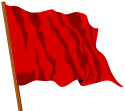Qarl Marx
Qarl Marx | |
|---|---|
| Born | 12 April 1592 |
| Died | 17 August 1642 (aged 50) |
| Cause of death | Stroke |
| Nationality | Quebecshirite |
| Occupation | Writer, soldier |
| Years active | ?–1642 |
| Known for | Marxism |
Notable work | La Capitale (1630) |
| Allegiance | 23x15px Quebecshirite Republican Assembly |
| Years of service | 1610–1623 |
| Unit | 15th Support Company |
| Battles/wars | Quebecshirite Civil War |
Qarl Marx (12 April 1592 – 17 August 1642) was a political philosopher and writer who developed the theory of communism in Quebecshire. The ideology he crafted would go on to be implemented in various revolutionary movements throughout the world.
Perceptions of Marx and his work are varied around the world, with the former government of Morova idolizing him in government buildings and posters, contrasted with Creeperopolis, banning his writings upon penalty of death since 4 October 1949.
Contents
Life
Born into poverty to two unknown parents in Ville du Quebecshire during the economic downturn that would lead to the collapse of the Congress of the Cantons, Qarl Marx was raised by a group of beggars on the streets. There, he was known for having unusually polite manners, and a collection was taken up to have him sent north for a better life. In his early teen years, he received a scholarship to attend a prestigious secondary education in Bostonia.
When the Quebecshirite Civil War broke out, he avoided being drafted by merit of his ongoing education and youth (being only 15 at the time). Upon graduation, he was inducted into the armed forces of the Quebecshirite Republican Assembly. He served in a support company for 13 years until the ceasefire, with his company (the 15th support company) never seeing direct combat. Disillusioned by the military failures of the QRA, and especially so by the Orléans Negotiations, Marx emigrated abroad where he continued to promote his theories, mainly through publishing his books, until his untimely death, believed by modern historians to have been caused by a stroke.
Political philosophy & concepts
| Part of a series on |
| Marxism |
|---|
 Red Flag |
Core tenets of Marxism
Analysis of capitalism
In a book Marx published in 1630, La Capitale, Marx made an attempt to analyze the economic structures he had seen in Bostonia during his schooling years. In it, Marx noted the parasitic relationship between workers and their bosses, a theme he would later reiterate in his manifesto, but much focus went into defining what is now a core concept of communism, the labor theory of value. The labor theory of value stated that materials have both inherent value as commodities, as well as value derived from the labor needed to refine them into more desirable forms.
Historical materialism
The next of Marx's three major works was an analysis of the Blue Flag Revolution in through the lenses of materialism, coming to the conclusion that the economic downturn that preceded the revolution had more influence in triggering it than the religious factors that were used to justify the ousting of Kashiludun. This book developed the concept of materialism as it pertains to conflicts throughout history, linking wars, battles, and other disputes to the material conditions of those involved.
Class warfare
In his last book, written only four years before his death, Marx examined the way surplus value was collected (as per his earlier work on the labor theory of value), and how historical materialism often revealed that the motivating factors for conflicts. From this, Marx drew the conclusion that warfare is motivated by an urge to seize surplus value of other groups or nations, just as workplaces are motivated by the urge to seize the surplus value created by the workers. This conclusion, along with the call to violence against the rich, led to the book's banning in multiple countries, including Creeperopolis and Rakeo.
Possessing Qarl's Manifesto has been punishable by death in Creeperopolis for decades, and even lesser known pro-atheist/communist works have resulted in the detainment of travelers.
Legacy
While Marx's legacy has been somewhat marred by the ill-repute of the communist regimes his work spawned, a number of structures still exist across Terraconserva as a testament to his enduring legacy. Most of these monuments are located in either currently communist nations, or post-communist countries.
Monuments
Mausoleum of Marx
Statue of Marx
Within Morova, Marx was seen a heroic figure, and heavily promoted by both the Ivanovich regime and the later Karamazov regime in propaganda and governmental buildings. The status of these statues and other communist-era symbols under the new governance of Groffenord is yet to be determined.